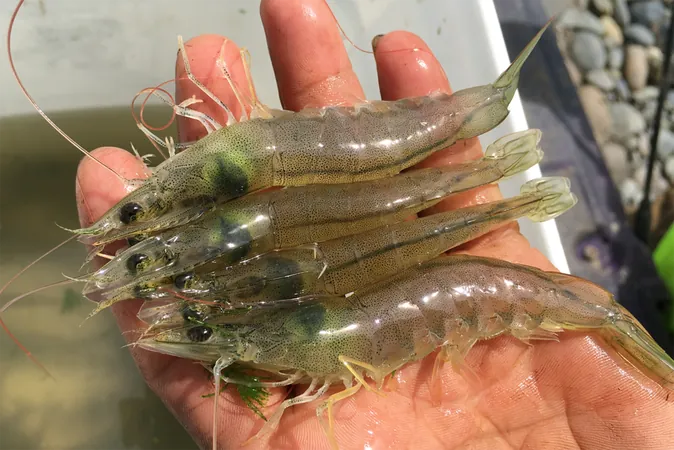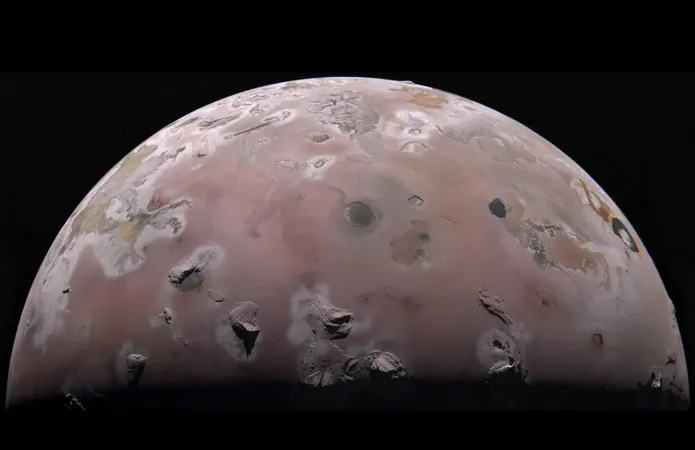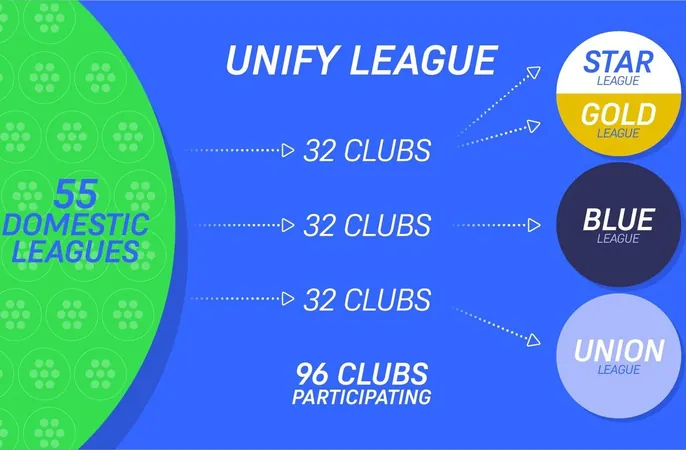
Surprising Discoveries in Shrimp Nutrition: Can a Plant-Based Diet Enhance Genetic Efficiency?
2024-12-16
Author: Noah
Surprising Discoveries in Shrimp Nutrition: Can a Plant-Based Diet Enhance Genetic Efficiency?
Recent research into the potential of plant-based diets for Pacific white shrimp (Penaeus vannamei) has revealed intriguing insights regarding their feed efficiency (FE) and genetic improvement. This groundbreaking study shows promise for aquaculture by exploring how P. vannamei can thrive on a plant-based diet – potentially transforming shrimp farming practices.
Understanding Feed Efficiency in Shrimp Breeding
Feed efficiency is crucial for aquaculture, dictating how well shrimp convert feed into body mass. Traditional metrics like feed efficiency ratio (FER) and feed conversion ratio (FCR) fail to capture the genetic variations influencing these traits. Instead, scientists are now turning to residual feed intake (RFI) as a more effective means of assessing feed utilization. RFI is defined as the difference between actual feed consumption and the expected requirements based on growth and maintenance needs. A negative RFI indicates efficient feed use, while a positive RFI suggests overconsumption.
While RFI has been extensively studied in livestock and poultry, its application in aquatic species is still developing. Notably, there have been fewer studies focusing specifically on P. vannamei when fed plant-based diets. Understanding these genetic variations is essential for the advancement of breeding programs aimed at improving feed efficiency in shrimp.
Research Setup and Findings
In a study conducted at BLUP Aquabreed Co. Ltd. in Weifang, China, researchers evaluated 30 full-sib families of P. vannamei. The experimental setup compared a plant-based diet to a fishmeal-based diet over a 42-day feeding trial. Strikingly, while the FM-based diet showed greater overall feed efficiency, five families of shrimp performed comparably on the plant-based diet. This points to the potential for genetic selection in breeding programs that focus on plant-based nutrition.
During the study, the shrimp acclimated for one week before switching to the diets, with careful monitoring ensuring minimal wastage. Interestingly, shrimp fed the fishmeal diet displayed significantly higher average body weight and daily growth rates than those on the plant-based diet.
Key Insights on Genetic Performance
RFI analysis revealed that shrimp on a plant-based diet had a higher average RFI of 0.0049 g/d compared to the fishmeal group (-0.0045 g/d). This suggests that overall, shrimp on the plant-based diet were less efficient in converting feed into growth. However, the genetic heritability for RFI was notably high (0.743) under the plant-based regime, indicating that selective breeding could still yield promising results.
Moreover, researchers found a mild genotype-by-diet interaction effect, with certain families demonstrating an ability to thrive on the plant-based diet. This marks an essential step toward developing shrimp strains that can efficiently utilize plant protein sources.
Future Implications for Aquaculture
As the aquaculture industry faces rising costs associated with traditional fishmeal diets and growing environmental concerns, the exploration of alternative feeding strategies like plant-based diets is more essential than ever. This study not only highlights the potential for genetic improvements within the P. vannamei species but also underscores the importance of continued research into sustainable feeding practices.
In summary, while challenges remain, the findings of this research signal a potential paradigm shift in shrimp farming. With ongoing advancements in genetic selection and an understanding of the impacts of diet on feed efficiency, the aquaculture industry may soon witness a new era of sustainable and profitable shrimp production. Keep an eye on these developments as they unfold— the future of shrimp farming could be greener than ever!









 Brasil (PT)
Brasil (PT)
 Canada (EN)
Canada (EN)
 Chile (ES)
Chile (ES)
 España (ES)
España (ES)
 France (FR)
France (FR)
 Hong Kong (EN)
Hong Kong (EN)
 Italia (IT)
Italia (IT)
 日本 (JA)
日本 (JA)
 Magyarország (HU)
Magyarország (HU)
 Norge (NO)
Norge (NO)
 Polska (PL)
Polska (PL)
 Schweiz (DE)
Schweiz (DE)
 Singapore (EN)
Singapore (EN)
 Sverige (SV)
Sverige (SV)
 Suomi (FI)
Suomi (FI)
 Türkiye (TR)
Türkiye (TR)